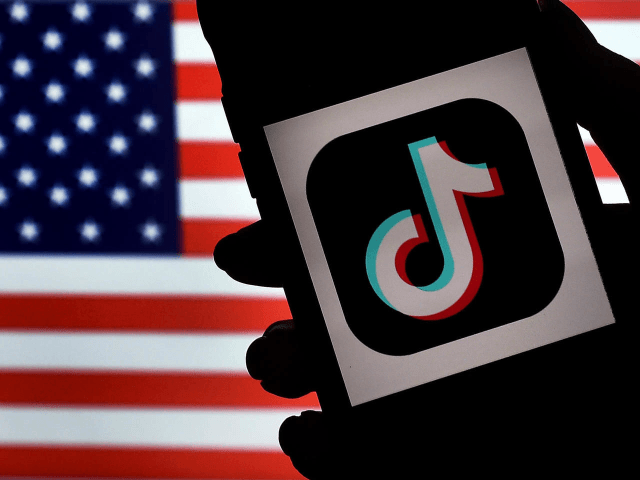Last week, Chinese Communist state media were hailing a prospective deal between Chinese company ByteDance, Oracle, and Walmart for control of the TikTok social media platform as a huge win for ByteDance and China, and a crushing defeat for President Donald Trump — The terms of the deal, however, changed a little over the ensuing week, prompting Chinese media to denounce it as “highway robbery” on Friday.
Suddenly the grand bargain that would have signaled defiant ByteDance’s victory over the U.S. government became a “robbery” that “reveals unabashed U.S. hegemony,” according to China’s state-run Xinhua news service.
“Media and experts pointed out that the United States used the pretext of national security to carry out coercive transactions, which has seriously undermined market principles and international rules, and exposed its unabashed hegemony, setting a bad precedent in the international community,” Xinhua gasped.
“In recent months, the U.S. government threatened to shut down TikTok’s operations in the United States, and then forced it to sell itself to American companies. International commentators and scholars have used similar words — robbery, extortion and heisting — to describe the nature of the U.S. coercion over TikTok,” the article claimed.
In a frantic effort to round up international “experts” who condemned the deal, Xinhua cited the Wall Street Journal calling it “crony capitalism”… without mentioning that the Journal thought the deal was not strict enough on TikTok and concluded by suggesting it was “better to ban TikTok outright than negotiate a deal that the French would be proud of.” In other words, they condemned the deal as precisely the big win for China that Chinese media were celebrating at the time.
China’s People’s Daily revealed the big annoyance for the Chinese Communist Party (CCP): the proposed arrangement to keep TikTok alive in the U.S. will involve turning the source code over to ByteDance’s American partners.
The People’s Daily — a state propaganda outlet for the CCP, the worst technology thieves in the history of the human race — worried that America might steal that precious TikTok technology:
Due to the U.S. government’s past bad record, one cannot help but suspect they will take advantage of the opportunity to directly or indirectly obtain the source code of Douyin, which is operated separately from TikTok.
Artificial intelligence push algorithms, models and codes obtained from Chinese users of Douyin, the Chinese version of TikTok, will also be exposed to some risks.
“Personalized information push service technology based on data analysis and artificial intelligence interactive interface technology” are the core assets of ByteDance, the parent company of TikTok.
Even more entertaining was the deep concern expressed by the People’s Daily that “the privacy of Chinese users is at risk of disclosure, threatening China’s national security.”
This is the schoolyard-taunt inversion of the very real concerns expressed by the American intelligence community that China uses its software to harvest data about the users and violate their privacy. One might almost suspect the CCP is worried about what American software engineers will find when they crack into TikTok’s code and discover exactly what information it has been gathering about its users, and what it has been pushing into their viewing feeds.
The Wall Street Journal, in a Friday morning article that Xinhua showed no interest in quoting, noted that keeping TikTok’s source code secret is even more of a priority for the CCP than ByteDance executives apparently realized.
“One person said ByteDance’s staff was reprimanded by government officials for not considering China’s interests when negotiating the deal,” the WSJ reported.
The CCP’s Global Times howled for the international community to “break its silence on the U.S. highway robbery of TikTok,” which it said “completely violates market principles and the spirit of the rule of law.”
“The Trump administration is acting entirely in U.S. interests, and even partly out of the self-interest of the ruling party, who simply does not allow a foreign company capable of challenging the competitiveness of its U.S. counterparts,” the Global Times wrote, apparently laboring under some profound misconceptions about which American political party is generally supported by Big Tech.
Endlessly repeating the “plunder” and “robbery” talking points that seem to have become popular with the Chinese Politburo, the Global Times lashed out at the American people as well as their government, incorrectly stating that U.S. distrust of Chinese tech companies is unreasonable and without evidence to support it:
Washington is utilizing the selfishness that is understandable in the US society, as well as the prejudice against China in the Western world. It is an act of bullying and showing-off, giving another privilege to the US hegemony to devour competitive state-owned companies at will. If it succeeds, the global technological landscape will be solidified and foreign high-tech companies will continue to be sacrificed to US hegemony.
The international community, especially other Western major powers, should maintain their basic long-term view. They should see clearly that the US plundering of TikTok is by no means an ideological battle, but a slaughter targeting China’s technological and economic competitiveness. People should not be fooled by Washington or short-term interests and prejudices.
Starting with the global siege of Huawei, Washington has been stigmatizing Chinese high-tech companies and trying to convince the world that these companies are the Chinese government’s informants. However, they do not have any evidence. Again and again, they have instigated public opinion, but insiders and most leaders worldwide know that this is Washington’s bluff for political purposes. Therefore, many Western countries have adopted a wait-and-see attitude on Huawei.
“Why have those so-called clear-headed Western people remained silent, and turned a blind eye to the US’ evildoing?” the Global Times wailed.
The U.S. Justice Department said on Friday it will oppose TikTok’s request to delay a ban on downloading the app from Apple and Google’s stores. The ban will go into effect late on Sunday unless judges block the order.

COMMENTS
Please let us know if you're having issues with commenting.